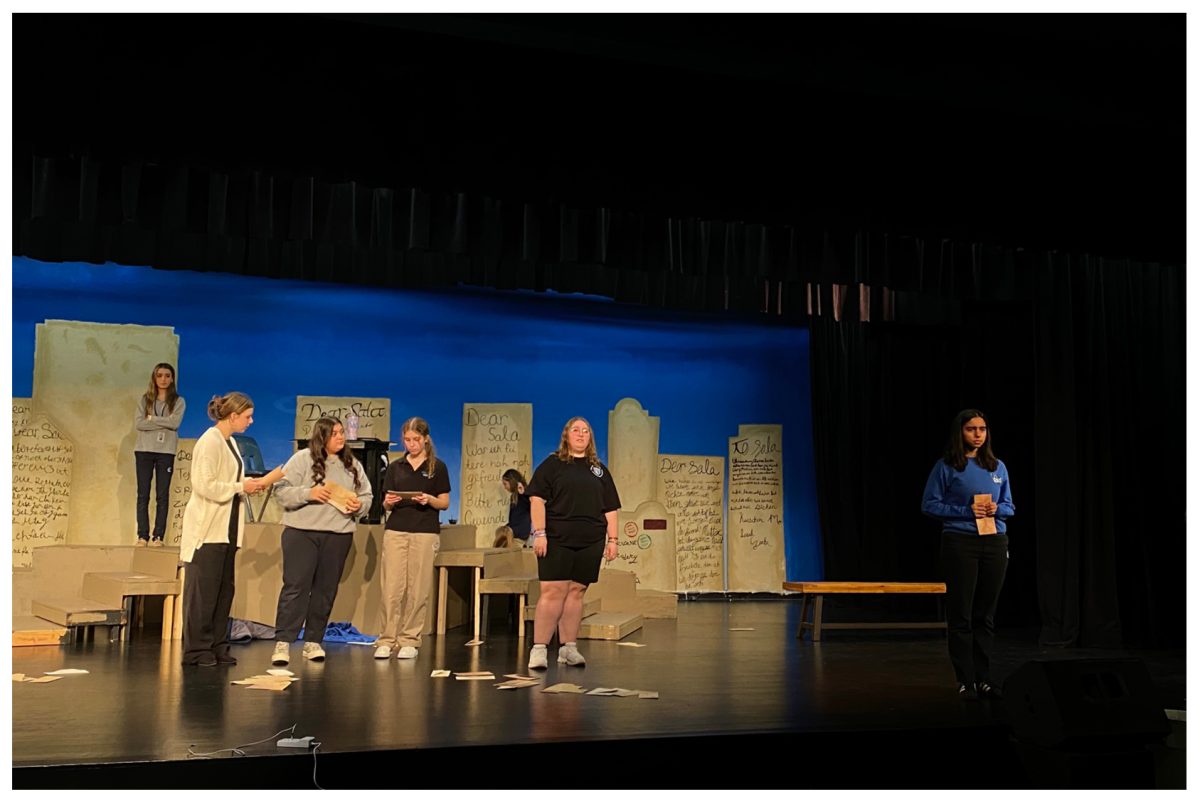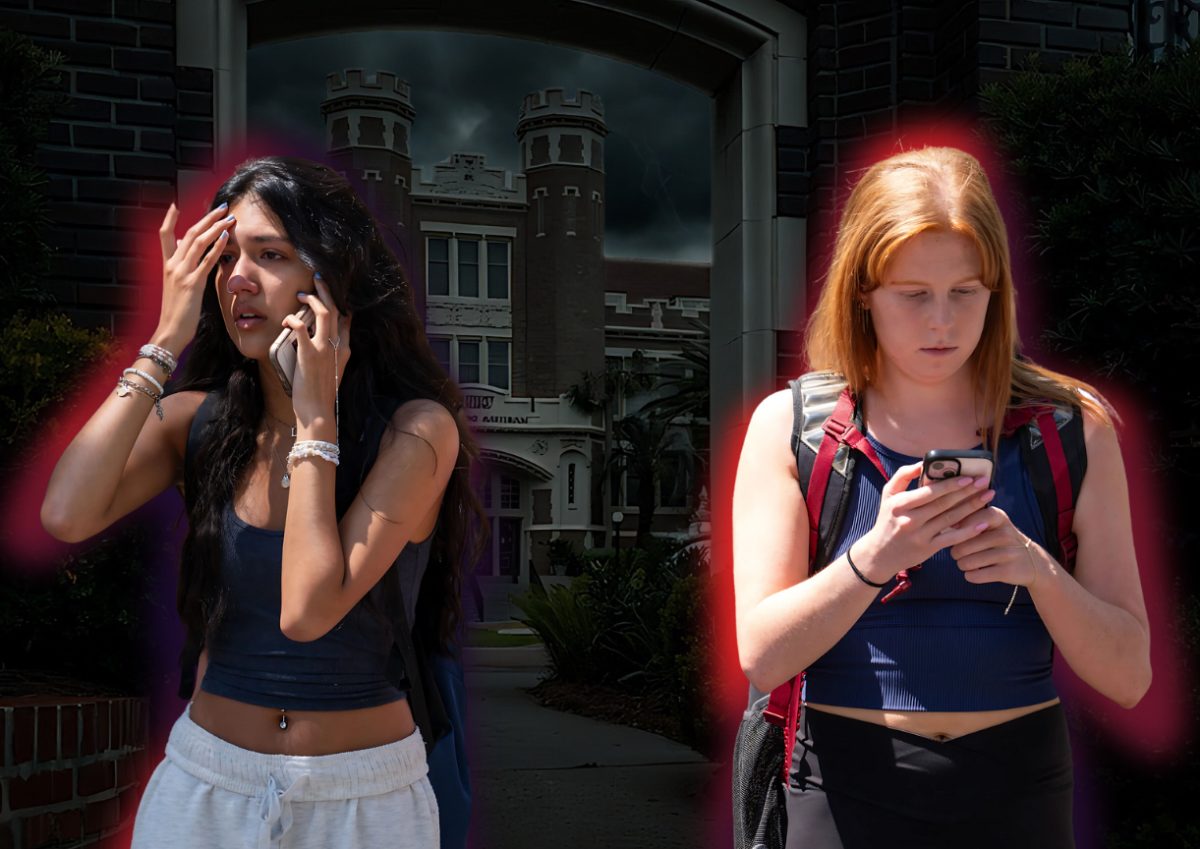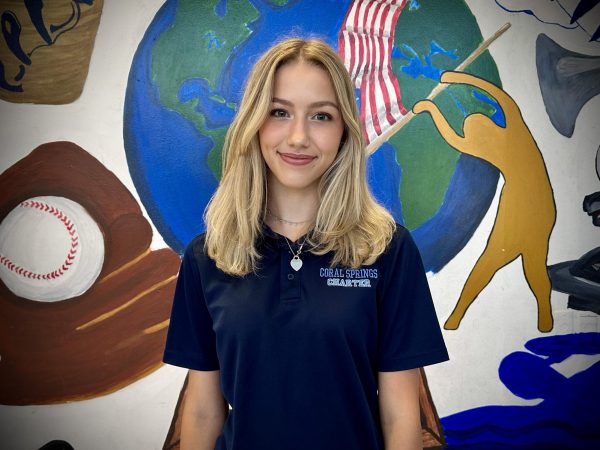After the success of last year’s production of The Curious Incident of the Dog in the Nighttime, the Charter theater program has decided to take a more historical approach with this season’s play. Drama director Mrs. Alaina Butler and her officers have chosen to put on an adaptation of Letters to Sala by Arlene Hutton.
The play tells the true story of Sala Kirshner, a Polish Jew who survived the Holocaust against all odds. Played by Julia Mish and Kasi Kaleva, Sala is resilient and resourceful, possessing a strong will to survive and protect her family.
Senior Julia Mish says the show is important to her because it is her last show, and she is honored to get to play Sala. She explains that she found it incredibly important to “give off the impression of her because she is a real historical figure and I want to tell her story right and I want to do justice by her name.” Mish elaborates on how it was difficult to capture the emotions since they haven’t lived through the same experiences, but still believes they had a responsibility to try, as “it’s important to preserve history and keep everyone informed.”
Senior Kasi Kaleva commented that “the play is a way to honor the people that went through the Holocaust and those brave enough to hide letters and tell their story. Every person’s story is important, and the play is able to convey that message.” Kaleva initially found the role to be stressful and felt a pressure to be perfect as “these are real people with real experiences,” so she felt a proper portrayal of their exact feelings to be imperative. However, she soon realized that “nothing could ever fully portray these events.”
As we alternate between the perspective of a young Sala in the 1940s and elderly Sala in 2005, it is revealed that as she spent over five years in seven different German Nazi Labor Camps, she wrote and saved over 350 letters, serving as a powerful glimpse into her experiences. Kaleva feels that “the alternating perspectives really allow the audience to get more immersed in the experience and get more invested in the storytelling.”
Her letters often reference her sister, Raizel, who alongside Sala, exhibits a determination to survive. Her character reflects the emotional impacts and resilience required to cope with the trauma of the times, as well as the compassion displayed towards fellow inmates. Raizel is played by Junior Hannah Rohrer who was shocked by her casting, as she “never expected to get a part as big as Raziel.” Rohrer feels that the show is very emotional, showing the audience several different sides of the experience. “You get to see some of Sala’s spunky teenage attitude while she is dealing with something a 16-year-old should never have to deal with.”
Sala keeps her letters hidden for over fifty years in an effort to save her family from her painful history. But everything is flipped upside down when Sala reveals the letters to her daughter Ann, played by Caitie Zilka, taking Sala, Ann, and the audience on an emotional journey filled with challenges, determination, and unbreakable bonds. As elderly Sala relives her youth, we see young Sala navigate a life in hiding and concentration camps, highlighting the deep-rooted emotional toll of the Holocaust, with Sala’s character carrying the scars of the trauma she experienced while subsequently displaying remarkable resilience.
Sala’s letters and memories provide an authentic lens into one of the darkest chapters of human history, exploring the themes of courage, friendship, family, and survival. It is sure to tug at your heart strings and leave a lasting impact as you exit with a new understanding of the Holocaust.








